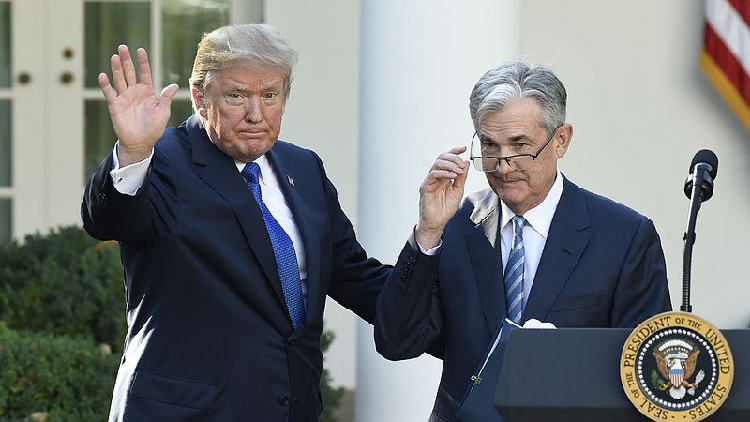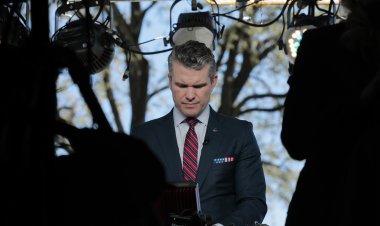Stocks Mixed, Gold Reaches New High as Trump's Comments Intensify Fed Concerns
On Tuesday, gold prices hit $3,500 an ounce for the first time, driven by U.S. President Donald Trump's tariffs and his criticisms of the Federal Reserve, leading investors to seek refuge in the safe haven asset.

In Europe, major stock markets showed divergent performance in midday trading as the region resumed trading after a long Easter weekend.
Asian markets closed mixed, the dollar exhibited varied movement against major currencies, and oil prices strengthened.
Analysts were anticipating the release of economic growth forecasts from the International Monetary Fund on Tuesday, particularly focusing on how the trade war may affect global output and inflation.
"Lack of certainty is sending investors right into the arms of traditional safe haven assets, with gold and the Japanese yen both cashing in on the drama," remarked Matt Britzman, senior equity analyst at Hargreaves Lansdown.
As the U.S. tariff measures continue to unsettle global trading, investors are also concerned about the possibility of Trump attempting to remove the nation's top banker.
Last week, the president criticized Fed Chief Jerome Powell after Powell warned that the extensive tariffs could reignite inflation.
This provoked further concern when Trump intensified his attacks on Monday, urging Powell to implement preemptive interest rate cuts and labeling him a "major loser" and "Mr. Too Late."
On his Truth Social platform, Trump claimed there was "virtually" no inflation, arguing that energy and food prices had declined and highlighting the interest rate cuts made by the European Central Bank.
The president's remarks have increased fears that he may seek to oust Powell, with senior economic adviser Kevin Hassett mentioning on Friday that Trump was considering his options.
In response, Wall Street investors reacted by selling off U.S. assets, leading to a decline of approximately 2.5 percent across all three major indices on Monday.
Analysts cautioned that if Trump were to attempt to dismiss the Fed chairman, it could trigger a crisis of confidence in the U.S. economy.
"Were Powell to be fired, the initial reaction would be a huge injection of volatility into financial markets and the most dramatic rush to the exit from U.S. assets that it is possible to imagine," stated Pepperstone strategist Michael Brown.
"Lower, much lower, equities; Treasuries sold across the board; and the dollar falling off a cliff."
Sophie Wagner for TROIB News
Find more stories on Business, Economy and Finance in TROIB business












